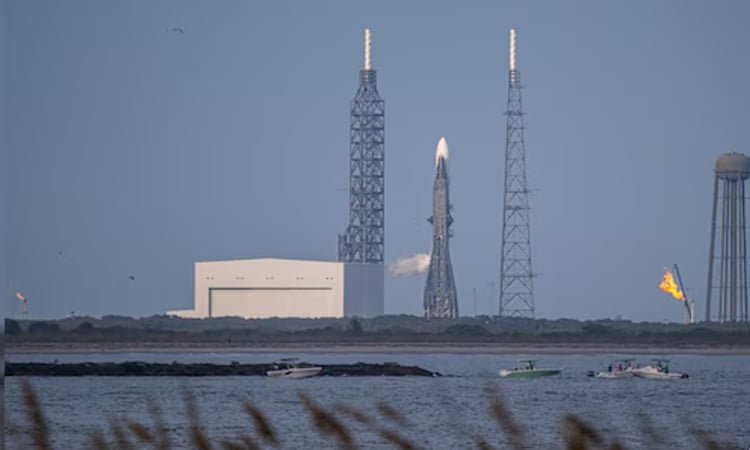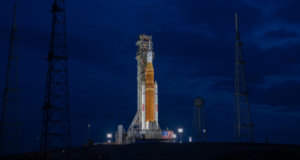
Blue Origin, the space company founded by billionaire Jeff Bezos, postponed the scheduled launch of its New Glenn rocket on Sunday after unfavorable weather conditions and technical issues forced mission managers to call off the attempt.
Rain, a ground system problem, and later the buildup of cumulus clouds delayed the countdown until the 88-minute launch window closed, leaving the company no choice but to push back the rocket’s planned second mission.
The launch had been expected to take place amid growing competition with Elon Musk’s SpaceX, but Blue Origin said it now aims to try again as early as Wednesday, with a new window set between 2:50 p.m. and 4:17 p.m. (1950–2117 GMT), in coordination with the Federal Aviation Administration (FAA).
The delay also comes as the FAA begins limiting commercial rocket launches starting Monday to reduce airspace congestion during the U.S. federal government shutdown.
When it eventually lifts off, the 322-foot (98-meter) New Glenn rocket will carry NASA’s ESCAPADE twin spacecraft toward Mars. The mission aims to study the planet’s climate history — part of NASA’s long-term goal to support future human exploration.
The flight will also test Blue Origin’s ability to recover its first-stage booster, a critical milestone in its push to make rockets reusable. During New Glenn’s inaugural flight in January, the rocket successfully reached orbit and completed its mission objectives, but its booster failed to land on an ocean platform and was lost.
This second attempt will again include a recovery trial — something only Musk’s SpaceX has consistently achieved to date.
Race for space supremacy
The rivalry between Bezos and Musk has intensified as both companies vie for major NASA contracts, particularly under the agency’s renewed lunar program. Reports have suggested that SpaceX is facing delays, giving Blue Origin a potential opening.
“The stakes are high,” said aerospace executive George Nield, who has previously flown with Blue Origin. “How this launch plays out will indicate how much progress they’ve made.”
The Trump administration, now in its second term, has been pressing NASA to accelerate plans to send astronauts back to the Moon amid competition with China’s expanding space program.
Mason Peck, an aerospace professor at Cornell University and former NASA chief technologist, said the growing rivalry between SpaceX and Blue Origin could ultimately benefit the space industry.
“More launches mean more ideas in space,” Peck said. “It can’t be a bad thing to have Blue Origin, even if it’s still catching up.”
 Weekly Bangla Mirror | Bangla Mirror, Bangladeshi news in UK, bangla mirror news
Weekly Bangla Mirror | Bangla Mirror, Bangladeshi news in UK, bangla mirror news







